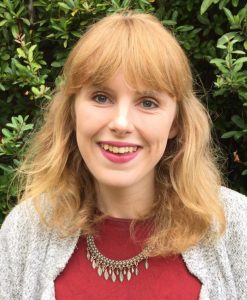Monday 23rd September is a milestone date for UK digital accessibility as the first stage of the Public Sector Bodies (Websites and Mobile Apps) Accessibility Regulations 2018 comes into force. On this date, Sarah Lewthwaite and Abi James will be talking at the 29th London Accessibility Meetup, 18:00-21:00, Sainsbury’s London, to coincide with this.
To register and for full details, visit the London Accessibility Meetup #29 pages. This promises to be an excellent event, and we look forward to seeing you there. Live Streaming and video details will be added when these become available.
Details:
Talk 1: Learning and teaching accessibility (Dr Sarah Lewthwaite, University of Southampton)
Digital technologies have revolutionised daily life, yet the capacity for accessible tools and services has not kept pace with demand, resulting in the ongoing exclusion of disabled people and older people. Despite the social cost, new legislation and a trajectory of growing demand for accessible digital services, there is still a lack of detailed understanding of how accessibility can be effectively taught, learned and scaled.
This talk introduces new research into the pedagogy of accessibility – reporting on a systematic literature review of published work in this field. Together we will consider what is known about the teaching and learning of digital accessibility, what makes it distinct and challenging, and how we – as practitioners, trainers, educators, advocates and experts – can work together to build upon this knowledge, to cascade our skills and understanding more effectively to co-workers, colleagues, clients and others.
Talk 2: Digital Accessibility Regulatory Landscape – are you ready? (Abi James, AbilityNet)
Legislation and regulation are an important part of the jigsaw for improving digital accessibility support. Over the past decade, countries have increasingly implemented accessibility requirements into statutory regulations with the EU, UK and Canada all adding new regulations in the past 12 months. September 2019 sees the first date by which UK and EU public sector organisations must ensure new website meet accessibility standards and publish accessibility statements. In this talk, Abi will talk about key requirements of the Public Sector Accessibility Regulations and how organisations are adapting to the requirements to test, comply and roadmap for accessibility standards. She will also look at how increasing regulation could impact the role of accessibility professionals both in public and private sector organisations.
Our Speakers:
Dr Sarah Lewthwaite is a Research Fellow at the University of Southampton and Principle Investigator on the UKRI-funded ‘Teaching Accessibility’ project at the Centre for Research in Inclusion. Sarah and her team are researching the teaching and learning of digital accessibility in universities and the workplace, to build evidence-based understanding of how accessibility can be more effectively taught. The 4-year study received over £650,000 from UKRI, and seeks to forge new collaborations and dialogue between academia and industry. Sarah has a PhD from the Learning Sciences Research Institute (combining Education, Computer Science and Psychology) and research experience and expertise across education, accessibility, HCI and disability studies.
Twitter: https://twitter.com/slewth
Abi is an accessibility consultant with the assistive technology charity AbilityNet. Motivated by her own experiences of using technology to overcome barriers, she is passionate about communicating the benefits of assistive technology and the need to create a digitally accessible world. Over the past 15 years, she has been involved in projects ranging from developing new assistive technologies, creating training courses and contributing to accessibility standards. Working with the University of Southampton and the British Dyslexia Association, she is also involved in research on accessible technologies and how inclusive policies and organisational culture impacts digital accessibility. She contributes to numerous government forums on digital accessibility policy an is co-chair of the Further and Higher Education Digital Accessibility Working Group set up to organisations implement the Public Sector accessibility regulations.
Twitter: https://twitter.com/abijames
